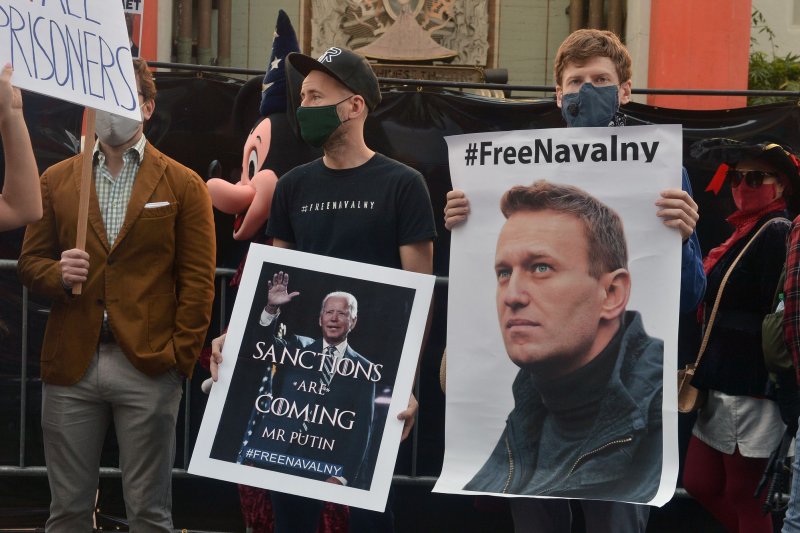Members of the local Russian community hold a demonstration in support of jailed opposition leader Alexei Navalny at the TCL Chinese Theatre in the Hollywood section of Los Angeles on Feb. 6. Photo by Jim Ruymen/UPI |
License Photo
March 18 (UPI) -- The Biden administration expanded export sanctions on Russia over the poisoning and detention of opposition politician and Kremlin critic Alexei Navalny.
The U.S. Department of Commerce announced on Wednesday the tightening of exports sanctions first imposed in 2018 in response to the poisoning of former Russian military intelligence officer Sergei Skripal and his daughter, Yulia Skripal, in Britain with a Novichok nerve agent.
Further sanctions were imposed early this month after Navalny, 44, was poisoned with the same Soviet-era chemical agent in August while on a flight from Tomsk to Moscow.
"By deploying illegal nerve agents against dissidents, both inside and outside its borders, the Russian government has acted in flagrant violation of its commitments under the Chemical Weapons Convention and has directly put its own citizens and those of other countries at mortal risk," the department said in a statement.
Though the specific exports being targeted were not mentioned, the department said it was committed "to preventing Russia from accessing sensitive U.S. technologies that might be diverted to its malign chemical weapons activities."
The department also said that due to the March sanctions starting Thursday it will be reviewing license applications "under a presumption of denial" for exports controlled for national security reasons destined for Russia.
After being poisoned, Navalny was flown to Germany where he received medical treatment for five months. The Putin critic was arrested in January on returning to his home country on charges of violating conditions of a suspended prison sentence handed down in 2014.
Russia has denied being involved in the poisoning of Navalny.
The European Union has also sanctioned Russia on accusations of its involvement.















